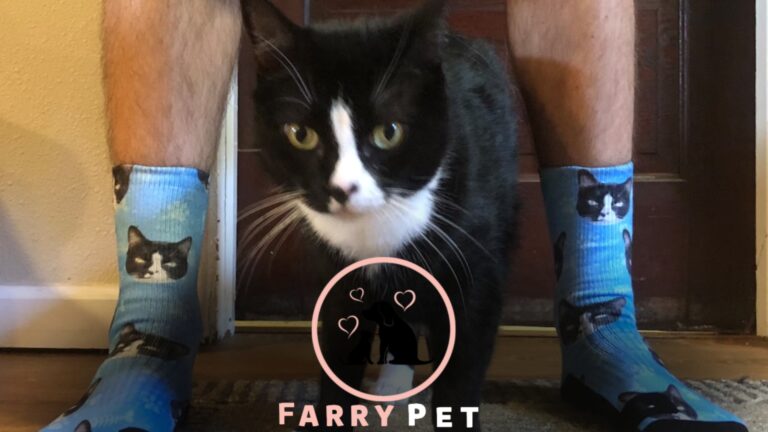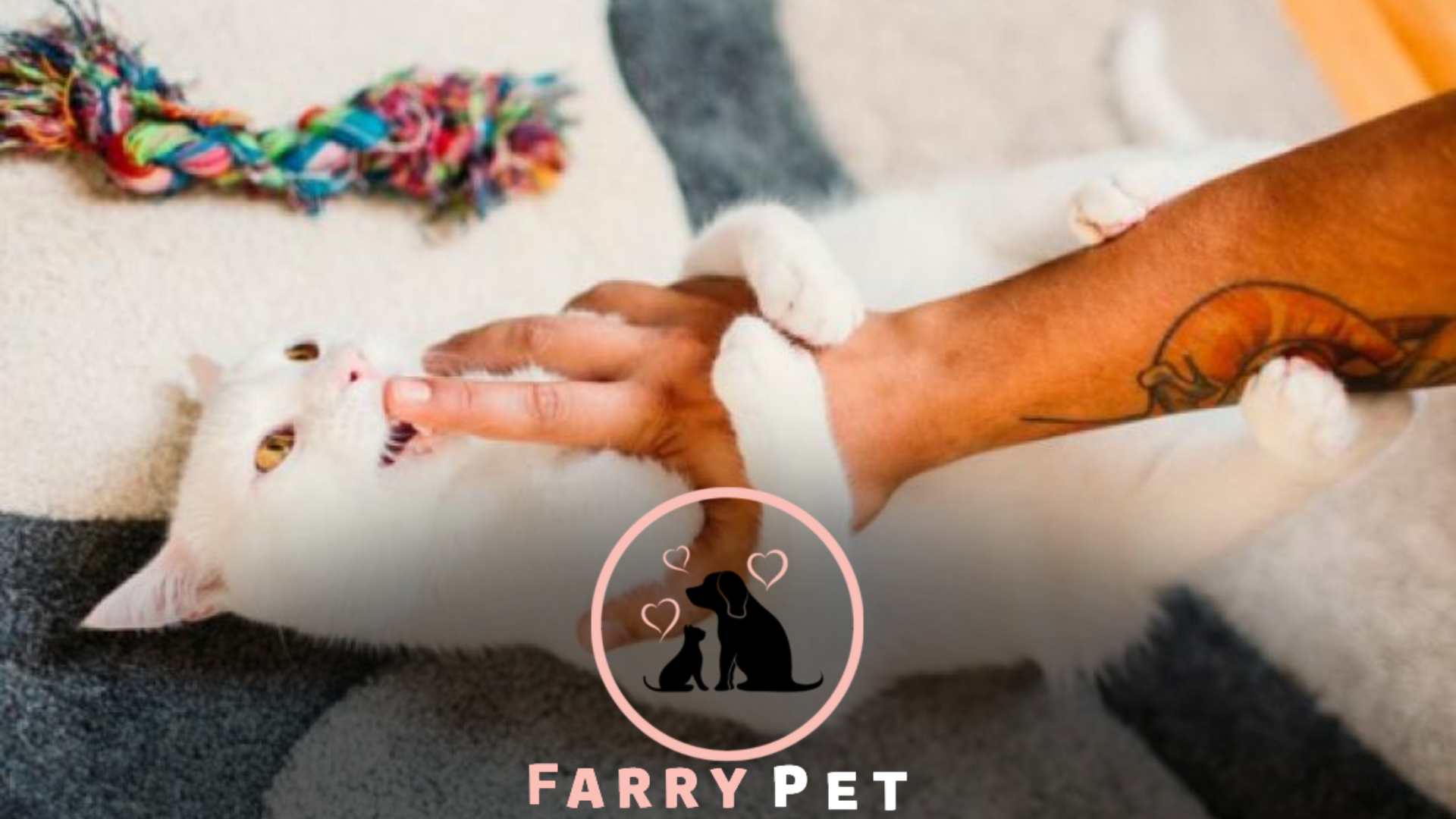
What Does It Mean When a Cat Bites You Hard? Cats are fascinating creatures with unique behaviors that sometimes puzzle their human companions.
One common behavior that often raises questions is when a cat bites its owner or anyone else with significant force.
While it can be distressing and even painful, it’s essential to understand the underlying reasons behind this behavior to better comprehend our feline friends.
In this article, we will explore the various meanings behind a hard cat bite and provide insights on interpreting and handling such situations.
What Does It Mean When a Cat Bites You Hard?
To comprehend why a cat may bite, it’s important to understand their behavior. Cats communicate through various means, including body language, vocalizations, and actions.
Biting is one way for them to express their feelings, whether it’s playfulness, fear, or frustration.
Reasons Why Cats Bite
1. Playfulness
Cats, especially kittens, often engage in playful behavior, which may involve biting during playtime. They use their mouths to explore the world and interact with their environment.
While playful bites may not be harmful, teaching them appropriate play boundaries is essential to prevent biting from becoming a habit.
2. Fear or Aggression
When a cat feels threatened or scared, it may bite in self-defense. Aggressive biting is usually accompanied by other signs of aggression, such as hissing, growling, or defensive postures.
Identifying the triggers and avoiding stressful situations can help mitigate this behavior.
3. Redirected Aggression
Redirected aggression occurs when a cat becomes agitated by one stimulus but directs its aggression toward another person or animal nearby.
For example, if a cat sees another cat outside the window and becomes frustrated, it may lash out and bite the nearest person. Understanding this behavior can help prevent accidental bites.
4. Overstimulation
Cats have a threshold for being touched and petted. Overstimulation can cause discomfort, leading to a defensive bite.
It’s crucial to recognize the signs of overstimulation, such as a flicking tail, flattened ears, or restlessness, and give the cat space when they’ve had enough interaction.
5. Pain or Medical Issues
Sometimes, a cat may bite due to underlying pain or medical conditions. Dental issues, arthritis, or injuries can cause discomfort, making them more likely to react defensively.
If a cat suddenly exhibits uncharacteristic biting behavior, it’s recommended to consult a veterinarian to rule out any underlying health problems.
When your feline friend displays unusual behavior, like biting you hard, it’s important to be prepared for various scenarios, including “What to Do When Your Cat is Foaming at the Mouth?”.
Body Language of a Biting Cat
Understanding a cat’s body language can provide insights into their emotions and intentions. Here are some common signs to look for when a cat is about to bite:
Dilated Pupils and Erect Ears
Wide and dilated pupils, accompanied by erect ears, can indicate excitement or aggression. It’s important to proceed cautiously when observing these signs, as the cat may be preparing to bite.
Flattened Ears and Whiskers Pulled Back
When a cat’s ears are flattened against its head, and its whiskers are pulled back, it usually signifies fear or aggression. These body language cues are often observed before a bite occurs.
Tail Flicking and Growling
A cat’s tail can act as an indicator of their mood. If the tail flickers rapidly or lashes from side to side, it may indicate agitation or annoyance. Growling or vocalizations may also accompany these behaviors.
Dealing With Cat Bites
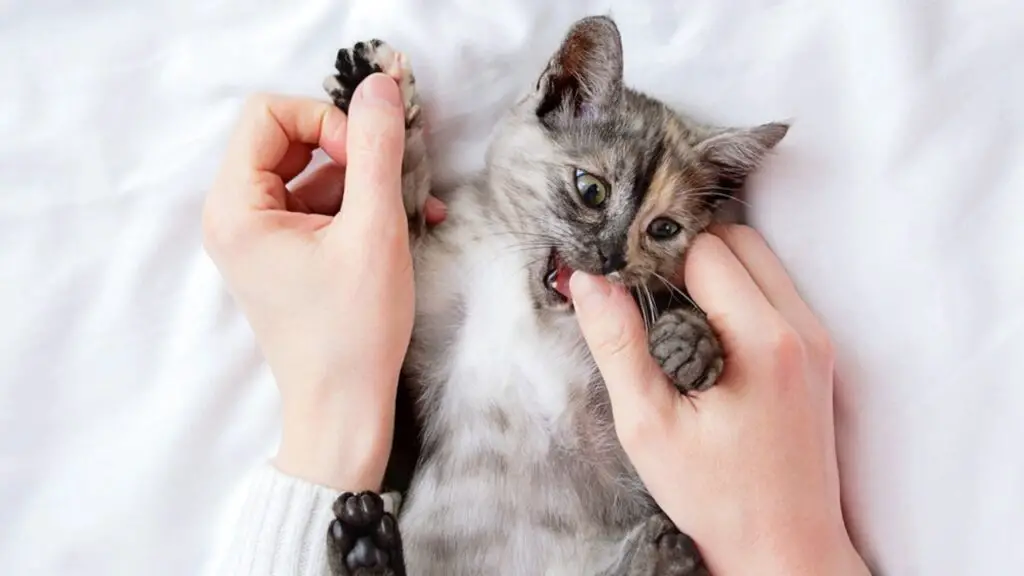
Sometimes, cat behavior can be puzzling, such as when your cat bit you hard. Understanding the reasons behind behaviors like “Why is My Cat Biting Her Newborn Kitten’s Head?” can provide valuable insights.
If you find yourself on the receiving end of a cat bite, here are some steps to follow:
Stay Calm and Avoid Retaliating
Reacting with anger or aggression will only escalate the situation. It’s important to stay calm and avoid punishing or yelling at the cat, as this may worsen their behavior.
Provide Safe Spaces
Ensure your cat has access to safe spaces to retreat and feel secure. Creating a peaceful environment helps reduce stress and the likelihood of defensive bites.
Training and Socialization
Proper training and socialization play a vital role in preventing biting behavior. Encourage positive reinforcement techniques and provide opportunities for your cat to interact with other pets and humans in a controlled and supervised environment.
Discovering where your cat chooses to sleep on your bed is essential to decipher the message behind a cat bite.
You may be surprised at how “Where Your Cat Sleeps on Your Bed and What It Means” is interconnected with their actions.
Consulting a Veterinarian
If your cat’s biting behavior persists or becomes aggressive, it’s advisable to seek professional help.
A veterinarian can assess your cat’s health and behavior and guide managing and modifying their biting tendencies.
Conclusion: What Does It Mean When a Cat Bites You Hard!!
A cat biting you hard can indicate various underlying reasons, including playfulness, fear, aggression, overstimulation, or pain.
Understanding the context and recognizing your cat’s body language is crucial for effective communication and prevention of bites.
By providing appropriate training, socialization, and veterinary care, you can help your cat develop healthier behaviors and strengthen the bond between you and your feline companion.
FAQs
Can a cat bite cause serious injuries?
While most cat bites may not cause serious harm, cleaning the wound promptly to prevent infection is essential.
If the bite becomes swollen, painful, or shows signs of infection, seeking medical attention is advisable.
Is biting a sign of affection in cats?
Although biting can be misinterpreted as a sign of affection, it’s important to distinguish between gentle nibbles and hard bites.
Hard bites are usually not meant to express love but may indicate other underlying reasons.
How can I prevent my cat from biting me?
Preventing biting behavior involves setting boundaries during playtime, providing appropriate outlets for your cat’s energy, and recognizing signs of overstimulation.
Consistency, positive reinforcement, and seeking professional advice can help modify biting behavior.
Should I punish my cat for biting?
Punishment is not recommended as a response to biting. It can worsen the cat’s behavior, damage trust, and increase aggression. Focus on positive reinforcement, redirection, and creating a safe environment instead.
When should I seek medical attention for a cat bite?
If a cat bite punctures the skin, causes bleeding, or shows signs of infection, it’s important to seek medical attention.
Also, consult a healthcare professional if you develop symptoms such as redness, swelling, pain, or fever after a cat bite.


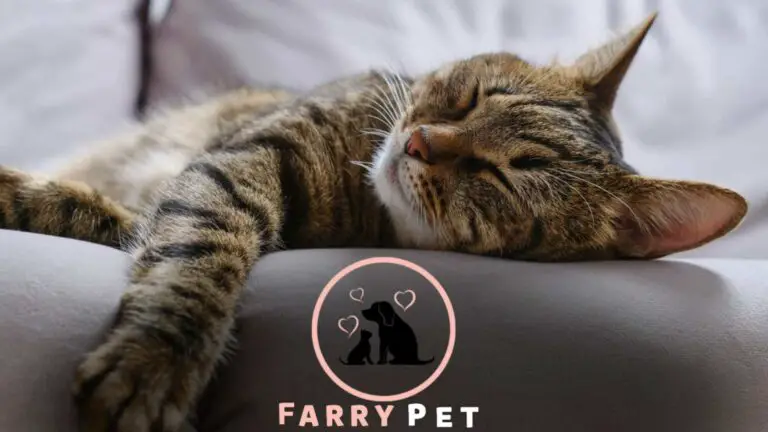
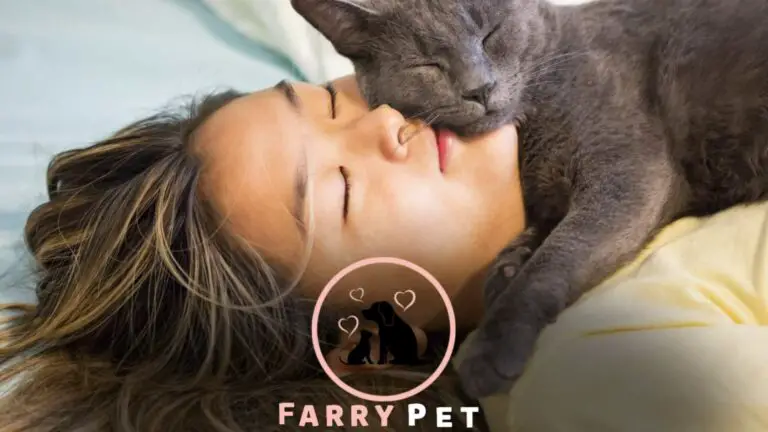
![Can Cats Eat Graham Crackers? [Let’s Know in Detail]](https://farrypet.com/wp-content/uploads/2023/08/Can-Cats-Eat-Graham-Crackers-1-768x432.jpg)

